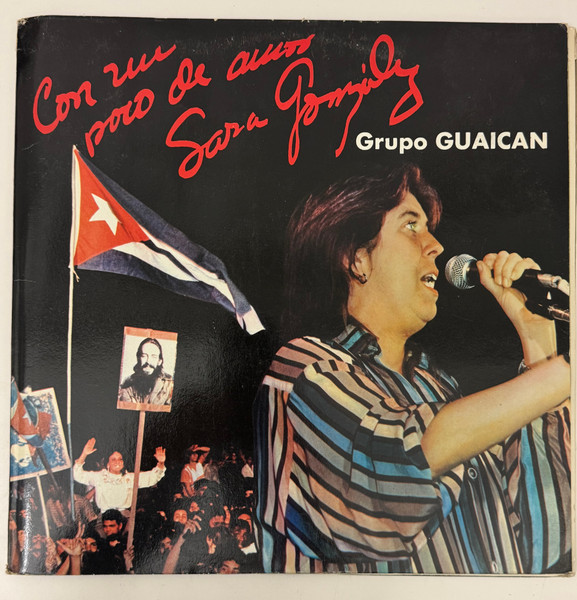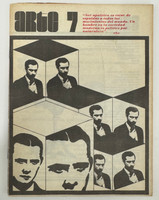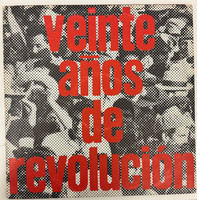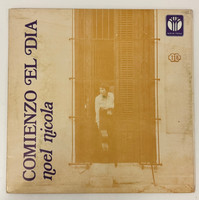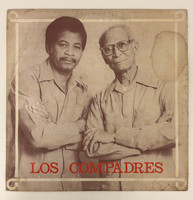- Travel
-
Exhibits
- La Portada Cubana
- Immortal Cuba: Artists Take on Their Heroes
- Seattle Poster Exhibit
- Sandra Dooley & Alejandrina Cué
- The Art of Wayacón
- Cuban Folk Art
- Cuba In Black And White
- 25 Years of Cuban Art Space
- Summer Folk Art Expo
- ¡SPRING AWAKENING FROM CUBA!
- Celebrating The Art Of Cuban Women
- Celebrating Paper, Affordable Art from Cuba
- Art of the Revolution
- Outsider Art
- Lost and Found
- En la lucha: Celebrating Cuban Women and Their Art
- Cuban Art Stash
- 100 Fires: 5 Cienfuegos Artists' Work on Paper
- Waya + Monte! Magic Realism in Cienfuegos
- Viva Cuba Viva! Poster Show
- Cultivando Sueños
- Black Lives Matter in Cuba Jan 9-March 27
- Leandro Soto: Crónicas visuales
- Cuban Canvas
-
Archive
- Global Reflection 2018: Spirit and Community
- Exhibit in the cloud: Contemporary Works on Paper
- MADE IN CUBA! MINNEAPOLIS EXHIBIT
- Cuban Posters and Photography from CCS collection
- AUTUMN SALE! Sept/Oct 2017
- SPRING ARTS AND CRAFT SALE
- Vuelo Directo/Non Stop: Alberto & Alejandro Lescay
- The Many Faces of Fidel
- Somos
- Made in Cuba!
- The US empire in Cuban graphics
- Made in Cuba/Seattle exhibit
- Entre Nos
- Looking Back
- Cuban Art Space
- Membership/Donate
- About Us
- Cuba News
-
Olivio Ballaou's cover design for "Con un Poco de Amor" captures the revolutionary fervor and mass appeal of Nueva Trova through powerful documentary photography. The cover features Sara González mid-performance, microphone in hand, her voice raised in passionate song against a dramatic black background. Behind her, the Cuban flag waves prominently alongside protest imagery including what appears to be a portrait of Che Guevara, while an enthusiastic crowd fills the lower portion of the frame. The hand-lettered red script of the title—"Con un poco de amor"—adds an intimate, personal touch that contrasts with the epic scale of the performance scene. The design perfectly encapsulates the convergence of personal emotion and collective political commitment that defined Nueva Trova's social role in revolutionary Cuba.
Sara González (1951-2012) was one of the few prominent women in the male-dominated Nueva Trova movement, known for her powerful voice and socially conscious lyrics. On this album, she is accompanied by Grupo Guaicán, a collective ensemble that supported various Nueva Trova artists. The repertoire features songs by the movement's luminaries—Silvio Rodríguez's "Con un poco de amor," Pablo Milanés's "Comienzo y final de una verde mañana" and "Buenos días América," Alberto Tosca's "Sembrando para ti," and Vicente Feliú's "A los que luchan toda una vida"—alongside González's own compositions. This collaborative approach exemplifies Nueva Trova's communal spirit, where artists regularly performed each other's work to amplify shared revolutionary messages.
Produced by EGREM and released on the Areito label in 1987, this album represents Nueva Trova's mature phase in the 1980s, when the movement had achieved institutional recognition while maintaining its grassroots appeal. The back cover photograph showing the seven-member ensemble standing together in casual solidarity, combined with the front cover's mass concert imagery, reinforces the collective nature of this musical movement. Pablo Milanés's liner notes praise González's voice and ability to transmit emotion, positioning this album as both artistic achievement and political testimony in the ongoing cultural project of the Cuban Revolution.
-
-
Discover More at the Center for Cuban Studies

